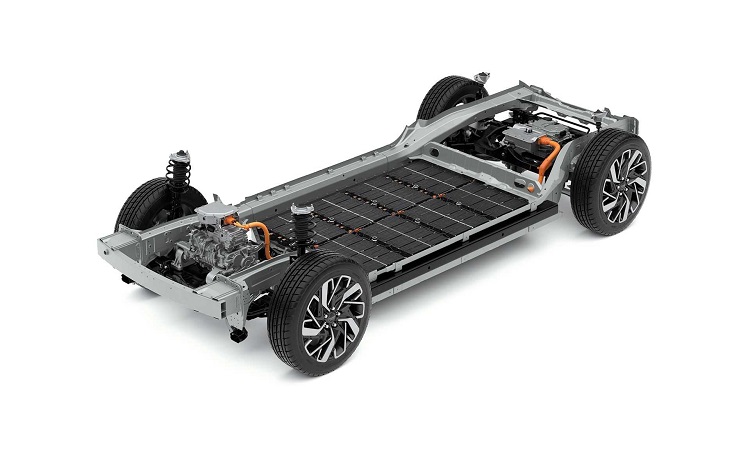Hyundai Motors Group has unveiled a new comprehensive platform for its future line of electric vehicles. It promises a range of up to 500 kilometers and a super-fast charge of 80% in just 18 minutes.
South Korean automaker Hyundai’s new Global Electric Modular Platform (E-GMP) will be the solid foundation for the next generation of zero-emission cars. It is specially designed for Battery Electric Vehicles (BEV) and offers improved cornering performance and driving stability at high speeds.
The platform is composed of a battery system mounted between the front and rear axles, it also has a rear traction motor and a bi-directional charging socket. In this way, the integrated components optimize driving dynamics and safety and maximize cabin space.
Future vehicles using it will be built primarily with rear-wheel drive, but there will also be a full fraction option on four wheels. All-wheel drive vehicles will include the additional front motor and a transmission switch that will control the connection between the motor and the front wheels. While not in use, it will remain off, which will provide greater energy savings.
the hour in less than 3.5 seconds. At the same time, its maximum speed will be 260 km \ h.
It offers a fast charging capacity of 800 volts and also allows a 400 V charging without the need for additional components or adapters. It supports charging speeds of up to 350-kilowatt hours and even allows other electric vehicles to be charged.
When it comes to range, a vehicle with E-GMP promises to travel up to 500 kilometers on a single charge. Nor will you have to wait long for another 500: the car will charge up to 80% in less than 20 minutes, reaching enough energy to go 100 kilometers in five minutes.
This architecture will support Hyundai Motor Group’s plans to launch 23 electrified models, including 11 battery-electric vehicles and sell close to one million units by 2025. It will be implemented for the first time by the all-electric Ioniq 5 and in the electric vehicle of Kia to be unveiled in 2021.




